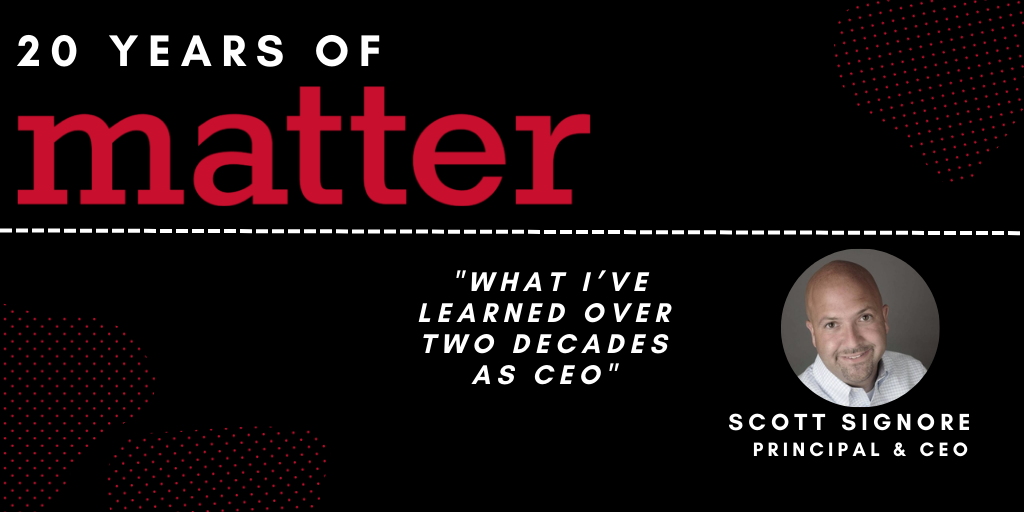This post was originally published on the StitchDX blog.
___
As often as not (perhaps more often), the first things you see when you do a Google search are paid ads. As long as organizations have budget to spend, they’ll be able to rule the roost on SERPs (search engine results pages). So where does that leave SMBs that need to get found and clicked? For them, which works better for search? Let’s have a showdown: Google Ads vs SEO.
Google Ads: A very brief introduction
 Google Ads allows brands to harness the colossal data power of the galaxy’s dominant search engine so that they can target customer messaging with uncanny (not perfect, mind you) accuracy.
Google Ads allows brands to harness the colossal data power of the galaxy’s dominant search engine so that they can target customer messaging with uncanny (not perfect, mind you) accuracy.
It should come as no surprise that, for example, searches for consumer products will invariably yield top-of-page ads from the online and retail giants like Walmart, Target, Amazon (of course), Home Depot, Best Buy, Dick’s, Chewy, etc.
It should also come as no surprise that the giants all have giant-sized budgets plus huge headcounts of staffers strategizing, creating, and analyzing their Google Ads efforts. (Speciality online retailers as well, although not at such massive magnitude. They live and die by their paid search results—which often lure me away from the giants.)
Google Ads: The pros
They can be more than just text ads. The three basic types of Google Ads are:
- Search Network campaigns — These are the ads that show up on your SERPs.
- Display Network campaigns — These are the images you see on sites or apps you visit (for instance, those awesome sneakers from Zappo’s that seem to follow you around the Web).
- Video campaigns — The “commercials” you see within YouTube videos.
Your ads support specific KPIs. For example, visits to your landing pages or phone calls to your business. The data’s there to assess ROI and make adjustments.

Rapid, real-time feedback. Your Google Ads dashboard will give you a comprehensive view of how your campaigns are doing, practically from the moment you activate them.
Powerful targeting. The neighborhood coffee shop needs customers, but not from 30 miles away. Google Ads enables a high level of geographic precision around who sees ads.
Budget sensitivity. Claiming to “work with almost any budget,” Google Ads only charges you when someone engages with your ad. There’s no minimum outlay. And there’s no schedule commitment—if you’re not happy with your campaign’s results then you can stop it.
Google Ads: The cons
Additional commitment of resources. I say “additional” because organic SEO (which you should be optimizing whether or not you’re running Google Ads) also requires time and person-power.
- Budget: Unless you’re using Google Ads for tactical promotion, you’ll need to allocate funds in your marketing budget across a span of months. This will result in more accurate and actionable response data.
- Time: Strategy, keyword and competitive research, results analysis… all are necessary for effective Google Ads campaigns.
- Person-power: To learn, manage, and improve the process in your organization.
Unlike Google Ads, organic SEO isn’t optional – it’s as essential your website as content, images, and navigation. That’s why every WordPress site we build includes basic search optimization with the Yoast plug-in.
“Organic” search results are generated from the numerous attributes that Google takes into account when it “crawls” your site. We can group these attributes into three categories: keyword-driven (or on-page), technical, and authority.
Keyword-driven (on-page) SEO attributes include:

- Keyword usage in the main headline and subheads (coded as H1, H2, H3, etc.) on each page
- Page URL
- Page title tag
- Page meta description
- Image alt-text (Google’s crawlers can’t “read” images, so add this descriptive text to each one.)
- Usage of keyword within the page (not too much, not too little)
Technical SEO attributes include:
- Site architecture
- Mobile-friendliness
- Loading speed
- URL structure
- Data structure
- Thin content
- Duplicate content
- 404s (“page not available”)
- 301 redirects
And finally there’s the matter of your site’s “authority.”
Does Google consider it the best source for information on a specific topic or topics? The key determinants of authority are:
- Backlinks (links to your content from other sites)
- Internal links (links to related content within the same site)
- And of course, the uniqueness of your content
Organic SEO: The pros
There’s a lot that you can control. Attaining that #1 SERP placement will not be a slam-dunk. But the more on-page, technical, and authority attributes you can dial in, the better your chances to rank high. (Was it Michael Gretzky or Wayne Jordan who said, “You miss 100% of the shots you don’t take?”)
So many powerful tools, many of them free. My faves:
- The Moz Bar — Instant analysis of page meta data is just the start.
- SEMRush — Analysis of organic keywords, backlinks, and more. (Also, valuations that can help with your Google Ads planning.)
- Google Analytics — The benchmark for overall site performance and visitor behavior analysis
- Google Search Console — Comprehensive search performance data
 It’s for the long term. The attributes that can win you a high ranking can also keep you there for some time. (Humblebrag: Google “skype is dead.” As I write this I can see StitchDX has been #1 for that search for 14 months and counting.)
It’s for the long term. The attributes that can win you a high ranking can also keep you there for some time. (Humblebrag: Google “skype is dead.” As I write this I can see StitchDX has been #1 for that search for 14 months and counting.)
Apart from time, there’s no cost. Enough said. (Unless you outsource the work.)
It’s more than rankings. Your optimized pages may also earn featured snippets, images, video, “People also ask,” and other page one SERP attention-getters.
Positive follow-on ripple effects. One study has suggested that a #1-ranking page may also rank in the top 10 for as many as 1,000 other relevant keywords.
LOADS of actionable data. We regularly review customer website data in Google Analytics and Google Search Console. As necessary we’ll perform additional SEO tasks to give the best pages more search “juice.” We’ll also strategically integrate CTAs for content assets into high-performing pages, to drive increased visitor engagement and lead generation.
Organic SEO: The cons
If you need instant gratification you’ll be disappointed. It can take time for your pages to climb in search rankings.
It takes time to do the work. I laid out a pretty big punchlist above — and it applies to every page of your site. However, the Yoast SEO plug-in streamlines optimization of the core keyword attributes — without which, I promise you, your pages will NOT rank.
It’s not set-it-and-forget-it. Regular analysis (including competitive analysis) is required to assess your site’s winning pages and which ones need help.
So which works better for search: Google Ads or SEO?
 Organic SEO is non-negotiable.
Organic SEO is non-negotiable.
I don’t think I’ll get any argument from the optimization gurus like Neil Patel, Rand Fishkin, and Andy Crestodina (Google them and you’ll fall into rabbit holes of great insights).
- As I stated above, basic keyword optimization of your site should be “standard equipment.”
- In addition, a new website should be optimized for “mobile first,” as mobile search volume has surpassed that of desktop.
- And with the launch of Google’s Core Web Vitals this past May, site speed matters more than ever to your rankings.
So if you focus on keyword optimization, mobile first, and Core Web Vitals, you’ll create a pretty solid organic SEO foundation for your site. Like the foundation of a house, it’s always there to support improvements (it also benefits from periodic inspections).
 Google Ads is next-level.
Google Ads is next-level.
Two factors should drive your decision to use Google Ads: goals and budget.
Your goals can be precisely single-minded, such as “drive online sales prior to July 4 and Labor Day weekends.”
They can range more widely, such as “boost summer awareness and take-out orders within a 15-mile radius.”
And they can be super-broad, such as “build brand awareness and competitive advantage by maintaining top-of-page placement for these keywords through end of year.”
And your budget is … your budget. Can you afford to commit long-term to strategic brand-building? Or are your needs more tactical, such as a weekend sale or an upcoming event to promote?
I will say this about Google Ads in closing: Unless your goals are tactical, a short-term campaign to “test the waters” will likely not yield adequate data to responsibly justify further outlays. On the other hand, it may give a deceptive “sugar high” of good performance that might not sustain over time. Fortunately, as mentioned above, you can stop a Google Ads campaign at any time.
___
Learn more about StitchDX here.



